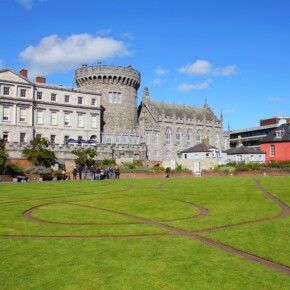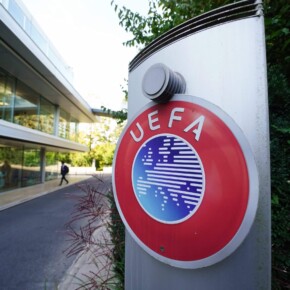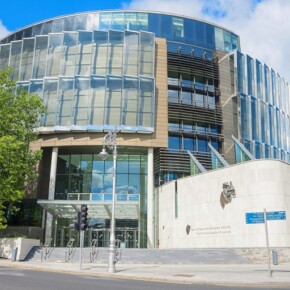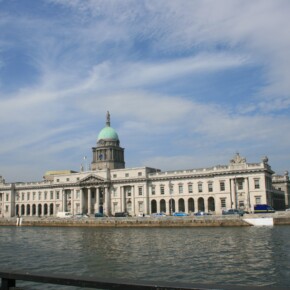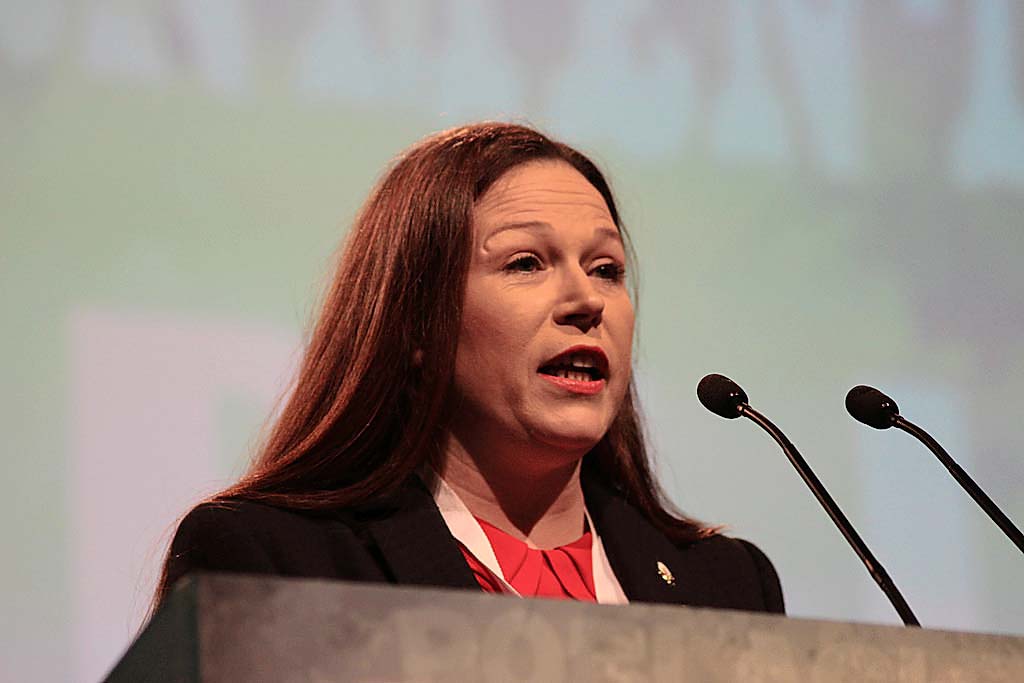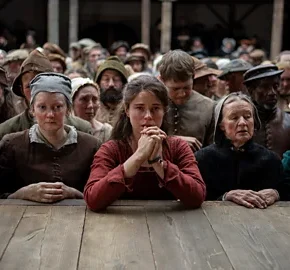Scenes from a count centre
Mike Finnerty 19 Jun 2024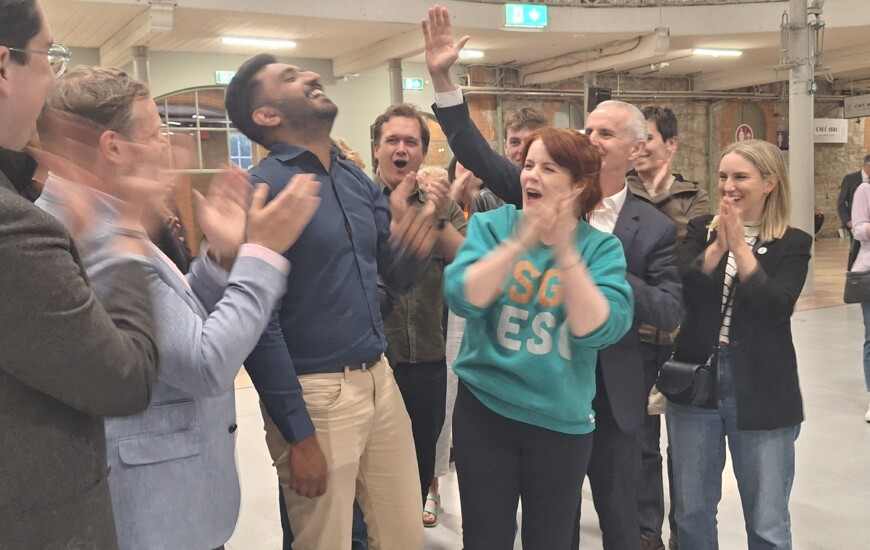
The count centre is where political legacies are made or destroyed.
It is where the fates of political parties are determined and also serves as a temperature check of how the general public is feeling on a given day.
Based on the turnout on June 7th, half of the country didn’t bother turning up or had long-standing hair or nail appointments to go to.
Out of the four different local electoral areas in Dublin, not one single constituency saw a turnout above 50%.
Those who did turn out in Dublin elected candidates right across the political spectrum, from the far-left all the way over to the far-right.
Plenty has been written about the consequences of this election, but we are taking a different tact.
The following is an account of 48 hours at the RDS as people waited for the results of the Dublin City Council election.
The story starts some weeks beforehand on March 14, when it was announced that local and European elections will take place on June 7.
Despite calls to hold them on a Saturday to boost turnout, Ireland decided to keep to the tried and tested Friday polling date.
In Croatia, an EU country with a similar population and size as Ireland, turnout was a woeful 21.3% for their European elections; perhaps there is a method to the Department of Housing and Local Government’s madness.
May 8 was the first day that posters were allowed to be displayed in public, and reports of teams being ready with ladders and cable ties at midnight buzz through the Dublin political scene.
Over the next month or so people make up their minds, but some unsavoury incidents of attacks on candidates are reported in the media and there is a general tense atmosphere – are we becoming as awful as the US or UK?
That makes it all the more pleasing that the RDS had a Christmas morning-like atmosphere over the weekend.
Win or lose, everyone was there for the same thing; to see how their party got on.
Saturday morning saw tally people from various parties crunch the numbers and that’s when the excitement really set in.
The RDS was divided into two sections – one for constituencies on the Northside and one for constituencies on the Southside.
Upstairs, the media could file copy, charge their phones or take a quick breather, while a small army of statisticians huddled together in a sea of laptops and cables to crunch electoral calculus.
Ireland’s electoral system is unique in that it’s the fairest and most representative way of voting in the world, but it is also unique in being nightmarish for candidates and journalists.
The first tallies were breathlessly just before midday, but the first results weren’t declared until 6:30pm.
Fine Gael man James Geoghegan and former Green mayor Hazel Chu were both elected in Pembroke on the first count, and became the first councillors elected to Dublin City Council for the 2024-2029 term.
Before the ecstasy came those 6 and a half hours, when a feeling approaching mania and tedium set in.
By lunchtime on Saturday there were no signs of first counts, but tallies gave a general indication of how the parties performed.
Early tallies indicated this was to be Fine Gael’s day, the Social Democrats and Labour had plenty to shout out, it was going to be a long few days for Fianna Fáil and Sinn Féin probably wished they stayed at home that day.
After the first round of tallies, we caught up with Vincent Jackson, veteran independent councillor for Ballyfermot-Drimnagh.
Having been on Dublin City Council since 1991, Jackson knows a thing or two about election day waits, and he told us at 2pm on the Saturday afternoon he would be re-elected.
It took until 6:30pm on the Sunday evening for Jackson to get official confirmation of his win.
The most contested race in all of Dublin, North Inner City, had a paradoxical energy; at times it gave you short bursts of anarchy like a great Black Flag song, then other times it had the epicness and sprawling evocation of a Pink Floyd album.
During a brief interlude to catch some fresh air, supporters of a candidate talked to us about how they thought their guy was getting on when the conversation was interrupted by supporters of a rival candidate with radically different views and asked if they would like a spare cigarette.
Even partisan politics isn’t immune to the universal nature of sharing fresh air and a smoke with a stranger when you want to grab 5 minutes of peace.
The race for 7 seats in North Inner City was the hottest ticket in town on Saturday night; it took 8 counts of transfers and the like for a candidate to be elected.
The seat was a target seat for the Social Democrats who ran two candidates (Daniel Ennis, who was successful, and Ellen O’Doherty, who fell just short) and local TD Gary Gannon most assuredly got his 10,000 steps in for the day running between the announcement stage where they announced the distribution of transfers and running back to the tables where council workers sifted through votes.
A whos-who of the Irish political scene popped down to the RDS over the course of the weekend, with everyone from Taoiseach Simon Harris, Sinn Féin leader Mary Lou McDonald, Labour leader Ivana Bacik, Social Democrats director of elections Cian O’Callaghan and Eamon Ryan of the Green Party spotted at various times.
A major politician showing up is the cue for the media to huddle and try get a soundbite from the person of the moment.
When Paschal Donohoe showed up to the count he said that the idea of Sinn Féin leading government had been “shattered” based on the results and pointed to their failed strategy of getting four candidates elected in his former constituency of Cabra-Glasnevin.
Indeed, Donohoe pointed to Fine Gael running two candidates in his part of Dublin, and correctly predicted both candidates (Colm O’Rourke and Gayle Ralph) would win their seats.
Sinn Féin’s Daithí Doolan questioned an RTÉ journalist who stated the party wasn’t on track to do well and asked him to produce evidence for his claims.
Doolan was successful in his election race early on Sunday morning but acted as a mentor to other candidates over the weekend, be they successful or not.
The Ballyfermot-Drimnagh candidate was among the first to congratulate Right2Change councillor Pat Dunne on his election victory, greeting him with a firm hug.
The big Sinn Féin loss on Dublin City Council was veteran councillor Larry O’Toole who lost his race in Artane-Whitehall.
Despite the loss, O’Toole was by the side of Edel Moran as she won her race in the same constituency; even when he himself lost, he was still there to provide support for other members of his party.
Labour leader Ivana Bacik was in a somewhat philosophical mood, saying the party was “at its best” when they are on the doorstep and spreading the Labour gospel to voters.
Bacik was also by the side of Eddie McGuinness as he was unsuccessful in his election bid in South-East Inner City.
As it was revealed that McGuinness was not garnering the transfers necessary to win election, she turned to McGuinness, changed her body language, and made a gesture with a slightly raised hand as if to say “look, you can’t win them all.”
A quick one-on-one chat with Soc Dems deputy leader Cian O’Callaghan on Sunday morning proved exactly why he was made director of elections; we asked him how many candidates were the party going to end up with on Dublin City Council and he replied “10”.
Despite being the best part of 10 hours from not finding out the results, he was laser-accurate in his predictions. Some people just have the natural gift of knowing how an election race is going to shake out.
Special mention must go to Green councillor Michael Pidgeon who covered every single square inch of the RDS count centre, going from constituency to constituency with the intensity of John Wick on a mission.
Even after his race was called just before midnight on Saturday night, Pidgeon was there again on Sunday to do it all over again to support his fellow party colleagues and drink in the joyful tedium of waiting for votes to be distributed.
Of course, there is the possibility that we will have to repeat this rigmarole over again in October or November – mutterings to that effect became clear even by that Saturday evening – but for now the Dublin electorate has had their trip to the polls.
As stated, Ireland’s electoral system is the best way of letting people having their voices heard and proportional representation means that everyone gets a bite of the apple.
It enables a healthy, functioning democracy where all sectors of society are represented.
If Simon Harris were to call an early general election, he would surely make an enemy of the army of Dublin City Council workers who worked all weekend to separate and count votes.
Veterans of the 1981-1982 wave of elections, which saw three general elections in 18 months, will laugh at the idea of millennials and Gen Z having to deal with so many elections in a short time.
To them, we ask – what kind of coffee did you live off, and was it industrial strength?


